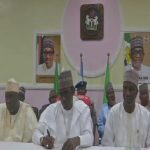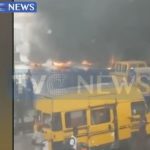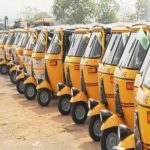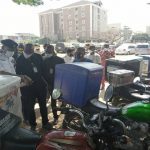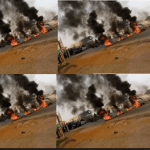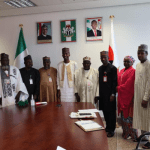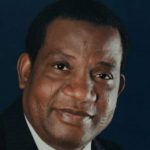The National Association of Tricycles and Motorcycles Owners and Riders of Nigeria is urging the All Progressives Congress to reopen key routes to Tricyle Operators in Abuja, the nation’s capital, and other major cities and ensure their members are freed of harassment and intimidation.
The national president NATOMORAS, Usman Gwoza had told the vice president-elect during the campaigns what his members have been going through, especially the challenge of having their motorcycles confiscated and crushed by local and state authorities.
In most Nigerian towns, commercial establishments are concentrated in the city centres, while the outskirts are populated by low and middle-income earners.
As a result, commuters have to travel longer distances, resulting in an average of two trips per person.
It is clear that the demand/ supply imbalance has resulted in a mobility crisis.
The emergence of Tricycles and Motorcycles on Nigerian roads was to address this imbalance, due to their versatility and easy adaptation to socio-economic patterns.
But the alarming influx of commercial bike and tricycle riders from neighbouring states and their nuisance on wide highways had led to their restriction to the suburbs
Insecurity had led to this being replicated in any states across the country a situation the commercial riders have found cumbersome and which they consider an attack on their incomes
The campaign had presented the opportunity for their national association to present their case to the Vice President-elect Kashim Shettima.
Now with victory achieved, this critical constituency whom the Vice President elect himself had described as, “authentic representatives of the people”, are emerging early to cash in on the promises supposedly given to them during the campaigns.
Leaders of National Association of Tricycles and Motorcycles Owners and Riders of Nigeria, insist that the tricycle affords a safer regulated means of last mile transportation that is affordable, safe and can be made environmentally friendly.
They urge for support through an improved security and energy policy framework, instead of the adversarial stances emanating from sub-national governments, which have categorized them unsafe alongside their two legged cousins popularly known as Okada.



